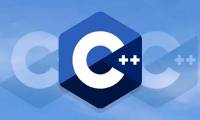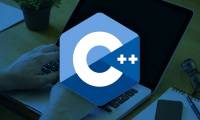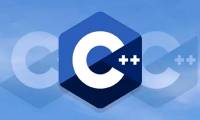
As we have seen how C ++ allows to return an array from a function, similarly, C ++ allows you to return a pointer from a function.

In the previous C ++ exercises, TipsMake.com introduced, you were acquainted with many types of lessons, from simple to complex. In this C ++ exercise, we will become familiar

In the previous C ++ exercise, we introduced you to read C ++ exercises about variables and data types. This time, there are 8 C ++ exercises about IF ELSE for you to practice and

Program comments are interpretations, which you can include in C / C ++ code, and make it easier for anyone to read the source code. All programming languages allow certain

Data type in C / C ++ While working with any programming language, you need to use various types of variables to store information. Variables, nothing but memory locations are

A variable provides named storage so that we can manipulate. Each variable in C / C ++ has a specific type, which determines: the size and memory layout of the variable; The

We will learn what functions and parameters of functions are in the next chapter. Below we will explain the concept of local variables and global variables.

Constant involves fixed values that the program cannot change and they are called literals.
 As we have seen how C ++ allows to return an array from a function, similarly, C ++ allows you to return a pointer from a function.
As we have seen how C ++ allows to return an array from a function, similarly, C ++ allows you to return a pointer from a function. In the previous C ++ exercises, TipsMake.com introduced, you were acquainted with many types of lessons, from simple to complex. In this C ++ exercise, we will become familiar
In the previous C ++ exercises, TipsMake.com introduced, you were acquainted with many types of lessons, from simple to complex. In this C ++ exercise, we will become familiar In the previous C ++ exercise, we introduced you to read C ++ exercises about variables and data types. This time, there are 8 C ++ exercises about IF ELSE for you to practice and
In the previous C ++ exercise, we introduced you to read C ++ exercises about variables and data types. This time, there are 8 C ++ exercises about IF ELSE for you to practice and Program comments are interpretations, which you can include in C / C ++ code, and make it easier for anyone to read the source code. All programming languages allow certain
Program comments are interpretations, which you can include in C / C ++ code, and make it easier for anyone to read the source code. All programming languages allow certain Data type in C / C ++ While working with any programming language, you need to use various types of variables to store information. Variables, nothing but memory locations are
Data type in C / C ++ While working with any programming language, you need to use various types of variables to store information. Variables, nothing but memory locations are A variable provides named storage so that we can manipulate. Each variable in C / C ++ has a specific type, which determines: the size and memory layout of the variable; The
A variable provides named storage so that we can manipulate. Each variable in C / C ++ has a specific type, which determines: the size and memory layout of the variable; The We will learn what functions and parameters of functions are in the next chapter. Below we will explain the concept of local variables and global variables.
We will learn what functions and parameters of functions are in the next chapter. Below we will explain the concept of local variables and global variables. Constant involves fixed values that the program cannot change and they are called literals.
Constant involves fixed values that the program cannot change and they are called literals.















